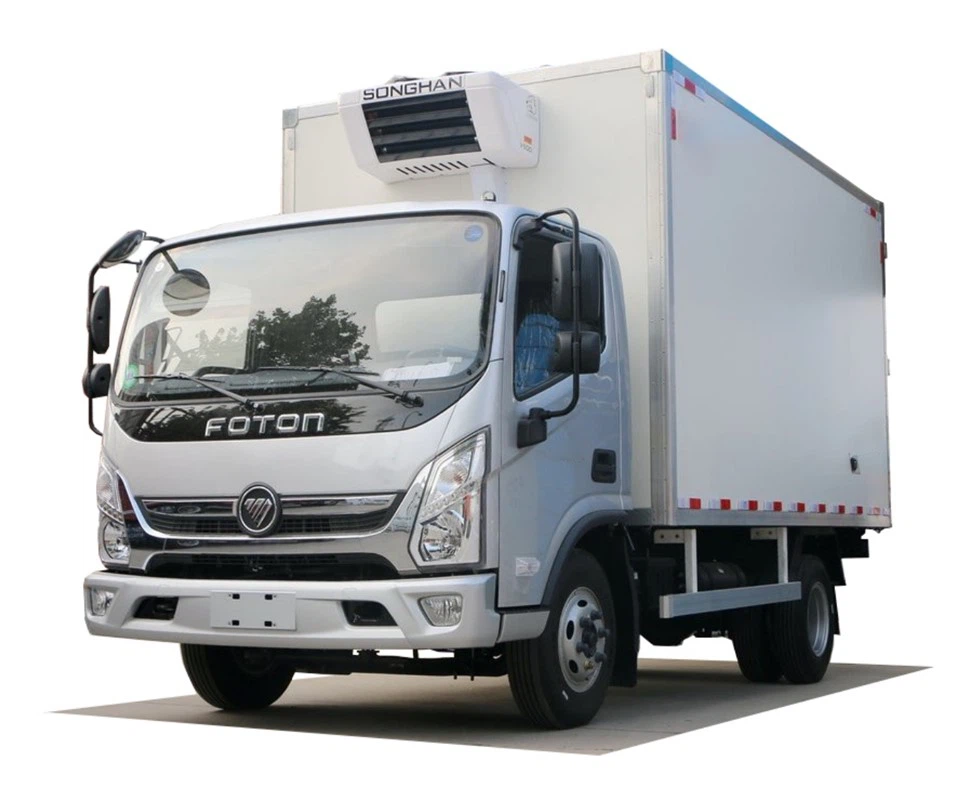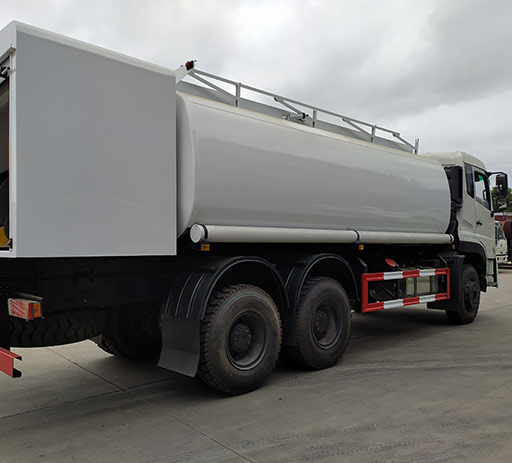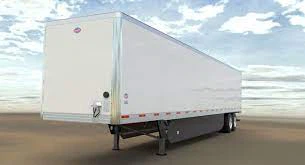Ultimate Guide to Lightweight Trailers: Choosing the Best for Your Needs

When it comes to outdoor adventures, lightweight trailers have become increasingly popular among camping and travel enthusiasts. Their ease of towing, fuel efficiency, and versatility make them an ideal choice for those looking to explore without the hassles of bulky vehicles. This comprehensive guide delves into everything you need to know about lightweight trailers, including their advantages, different types, how to choose the right one, and tips for optimal use. So, whether you’re a seasoned traveler or a beginner, read on to find the perfect lightweight trailer for your next adventure!
What Are Lightweight Trailers?
Lightweight trailers are generally defined as trailers that weigh less than 3,500 pounds. They can be towed by most vehicles, including smaller SUVs and even some cars. These trailers come in various styles and sizes, from small teardrop models to larger travel trailers, making them ideal for families, solo travelers, and couples alike.
Advantages of Lightweight Trailers
1. Improved Fuel Efficiency
One of the main benefits of lightweight trailers is the fuel efficiency they offer. Since they are lighter than traditional trailers, they put less strain on your vehicle, allowing you to maximize your fuel economy during long trips.
2. Easier to Tow
Lightweight trailers are designed to be towed by a wide range of vehicles, making them an excellent option for those without a heavy-duty truck or SUV. Additionally, their lighter weight means easier handling on the road, especially when making turns or navigating tight spaces.
3. Greater Maneuverability
The lighter weight and smaller size of these trailers provide better maneuverability. This advantage makes it easier to park in tight spots, traverse rugged terrain, or explore campsites.
4. Versatile Designs
Lightweight trailers come in various designs and configurations, from basic pop-up campers to luxury models equipped with full kitchens and bathrooms. This versatility allows you to find a trailer that best fits your lifestyle and budget.
5. Cost-Effective
In many cases, lightweight trailers are more affordable than their heavier counterparts. Not only do they typically have a lower upfront cost, but their fuel efficiency also saves you money on longer trips.
Types of Lightweight Trailers
1. Teardrop Trailers
Teardrop trailers are compact and aerodynamic, making them easy to tow. They often sleep two people and may include basic amenities like a kitchenette and sleeping area.
2. Pop-Up Campers
Pop-up campers are collapsible trailers that expand to provide living space once parked. They usually feature canvas sides that can be set up easily, providing a lightweight option for families.
3. Travel Trailers
Travel trailers are a bit larger than teardrops and pop-ups, providing more features and space. They can accommodate families and often come equipped with bathrooms and kitchens.
4. Fifth-Wheel Trailers
Fifth-wheel trailers are designed to be towed with a pickup truck and offer additional space and amenities. While they can be larger, lightweight models are available.
5. Utility Trailers
Utility trailers are functional trailers that provide basic transport capabilities. While not designed for living, they can be an excellent choice for hauling gear and outdoor equipment.
How to Choose the Right Lightweight Trailer
1. Assess Your Needs
Before purchasing a lightweight trailer, it’s essential to know your primary use. Are you planning weekend camping trips, or do you intend to live in it long-term? Assessing your needs will help you narrow down your choices.
2. Check Your Towing Capacity
Ensure that your vehicle is capable of towing the trailer you choose. Refer to your owner’s manual to find your vehicle’s towing capacity, and select a trailer that falls within that limit.
3. Consider Weight and Size
The weight and size of the trailer will significantly impact its maneuverability and fuel efficiency. Select a trailer that is lightweight enough for your vehicle, yet spacious enough for your personal needs.
4. Explore Features
Lightweight trailers vary drastically in features. Determine what amenities you can’t live without, such as a bathroom, kitchen, or extra sleeping space, and find a model that meets most of your criteria.

Maintenance Tips for Lightweight Trailers
1. Regular Inspections
Inspect your trailer regularly for wear and tear. Check the tires, brakes, and lights before every trip to ensure everything functions correctly.
2. Clean and Sanitize
After each trip, clean the interior and exterior of your trailer. Proper sanitation will help keep it in good condition and free from mold or mildew.
3. Winterize Your Trailer
If you won’t be using your trailer during the winter months, it’s essential to winterize it. This process involves draining the water systems, adding antifreeze, and storing your trailer in a dry place to avoid winter damage.
4. Keep Documentation Handy
Always keep your maintenance records, warranties, and insurance documents organized. This will make it easier to manage repairs or claims when necessary.
Popular Lightweight Trailer Brands
1. Airstream
Airstream is renowned for its iconic aluminum trailers. Their lightweight models such as the Airstream Basecamp are popular among travelers who appreciate quality craftsmanship.
2. Jayco
Jayco offers a variety of lightweight trailers ranging from pop-ups to travel trailers. Their Jay Feather line is particularly popular for families.
3. Forest River
Forest River has a diverse range of lightweight trailers, including the Rockwood Mini Lite series, which combines comfort and lightweight design.
4. Keystone
Known for their Passport series, Keystone provides stylish and lightweight solutions for modern campers. Their trailers often feature innovative layouts and utilities.
Lightweight Trailers for Different Lifestyles
1. Families
Lightweight trailers offer ample space for families on camping trips. Consider models with multiple sleeping areas and extensive kitchen facilities. A good option would be the Jayco Kiwi, designed specifically for families.
2. Solo Travelers

Solo adventurers benefit from smaller, more compact models, like teardrop trailers or pop-up campers. These trailers provide enough space for essential amenities without weighing down your vehicle.
3. Couples
Couples might prefer travel trailers that feature a comfortable sleeping area and kitchenette for meal preparation. A model like the Airstream Bambi offers both style and functionality.
Common Misconceptions About Lightweight Trailers
1. They Are Not Durable
Many novices believe lightweight trailers lack durability. However, many models are built with high-quality materials that can withstand the elements and regular use.
2. Limited Space Is Uncomfortable
While lightweight trailers are smaller, many are designed efficiently, maximizing space with creative layouts. Comfortable sleeping arrangements and functional kitchens can make a small trailer feel spacious.
FAQs About Lightweight Trailers
1. What is the weight limit for lightweight trailers?

Lightweight trailers are typically defined as weighing less than 3,500 pounds, though some models may weigh even less.
2. Can a smaller vehicle tow a lightweight trailer?
Yes, many lightweight trailers can be towed by smaller vehicles like SUVs and some cars. Always check your vehicle’s towing capacity
3. Are lightweight trailers suitable for full-time living?
While some lightweight trailers are designed for temporary use, many models offer the necessary amenities for full-time living. However, consider space and storage needs carefully.
4. Do I need a special license to tow a lightweight trailer?
In most cases, you do not need a special license to tow a lightweight trailer, but it’s essential to be aware of local regulations.
5. How can I improve my trailer’s fuel efficiency?
To improve fuel efficiency while towing, maintain your tires’ proper pressure, reduce extra weight, and drive at moderate speeds.
6. What accessories do I need for a lightweight trailer?
Essential accessories include wheel chocks, a towing hitch, leveling blocks, and fresh water hoses. Some travelers opt for additional comfort items like camping chairs and outdoor gear.
Conclusion
Lightweight trailers offer an excellent balance of convenience, comfort, and versatility for anyone looking to explore the great outdoors. With various options to choose from, understanding your needs, and being aware of maintenance requirements, you can select the perfect lightweight trailer to embark on countless adventures.
